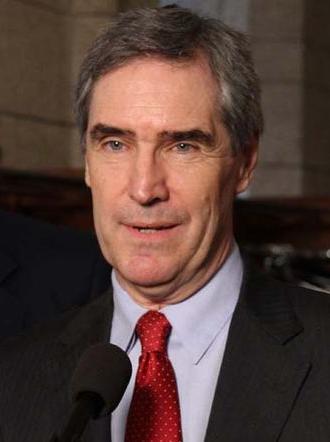During any election, interest groups send out surveys to parties and candidates about the issues that matter to them. This was no exception for groups whose interests mirror those of the queer communities — Egale Canada, Jer’s Vision and the Canadian HIV/AIDS Legal Network, who all sent out questionnaires.
While the Conservative Party did not respond to any survey put to it by any of these groups, the Liberal Party did not respond to the Egale Canada questionnaire either, though it did respond to those put out by other groups.
“I’m flummoxed,” says Helen Kennedy, Egale Canada’s executive director. “I’m hoping that something fell through the cracks somewhere, and they just forgot about us, but we did send them a couple of reminders, and we haven’t heard anything back. Surely to God they could understand the content and that they would be able to answer it.”
Kennedy notes that the party did commit to restoring the Court Challenges Program in its platform, which was one of the questions asked in Egale’s survey.
Kennedy also notes that the NDP’s response was very well done.
“Even the language that they were using – ‘cisgender’ – they really did a good job with responding,” Kennedy says. “It was very in-depth, very thoughtful, and obviously they know the community. The Greens’ was good for what it was, and like I said, the Liberals and Tories didn’t respond.”
“Cisgender” refers to people whose gender presentation and identity matches their biological sex, and is used to contrast with the term transgender.
While the Liberals did respond to the survey put to them by the Canadian HIV/AIDS Legal Network as a party, the responses by their candidates to a separate survey about support for reforming Canada’s Access to Medicines Regime (CAMR) were more spotty.
This was in part because the Legal Network asked each party if they could put all of their candidates down as supporting the measures rather than wait for individual responses. The NDP, the Green Party and the Bloc all responded affirmatively, while the Liberals did not. Not every Liberal MP supported Bill C-393 in the last Parliament, though one MP who voted against it is not running again.
Three Conservative candidates did indicate support for CAMR reform, while four indicated they did not – the only party with candidates who indicated negative responses.
As for the responses from the parties on the larger survey, Legal Network executive director Richard Elliott was dismayed by one Liberal response in particular.
“In the last federal election, the Liberal Party, when asked about implementing needle exchange programs in prisons, gave a very definite yes, that they were supportive of that health service being introduced,” Elliott says. “This time around they don’t seem to have reaffirmed that support and simply say, We’ll consult with experts and stakeholders and consider what they have to say, so that’s an unfortunate weakening of their support.
“I don’t know if the parties go back and look at their responses to questioners and specific questions made previously, so I don’t know if that’s a conscious backsliding from a previous statement of support, or nobody bothered to check what they were on the record of supporting before,” Elliott adds.
Elliott also notes that of the parties that responded to the survey, all were supportive of Vancouver’s Insite, the first legal supervised injection site in North America, but the Bloc more specifically indicated that it was up to each province to decide.
Jer’s Vision also put out a survey on youth issues for the first time, based on the initiative of a co-op student in their office who, despite being too young to vote, still wanted to hear from the parties on issues that matter to youth.
“The initiative was a great idea, because you never get youth, who can’t vote, so engaged in the issue, and that was fantastic to see kids asking for answers from people who don’t normally focus on them,” says Jer’s Vision’s director, Jeremy Dias.
The responses from the campaign teams — and ostensibly from the leaders themselves — were not as in touch with some of the issues as responses from some local candidates.
“I was a little disappointed that parties in general are a little further away from the issues that we’re facing,” Dias says.
Dias also notes that none of the major leaders has held a rally in the queer community.
“That’s sort of heartbreaking, because individual candidates are having parties and having events with queer candidates and queer people, and coming out to queer events, but the leaders have really shied away from those types of things, and that’s really important.”


 Why you can trust Xtra
Why you can trust Xtra


